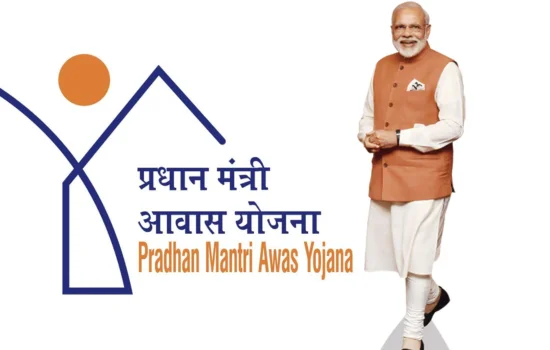The Government of India has launched the Pradhan Mantri Awas Yojana – Urban 2.0 (PMAY-U 2.0), an ambitious initiative aimed at providing affordable and quality housing to urban residents. Building upon the success of the original PMAY (Urban) program, this enhanced version seeks to achieve the goal of “Housing for All” by 2024.
Key Objectives of PMAY-U 2.0
PMAY-U 2.0 is designed to address the housing needs arising from rapid urbanization in India. The scheme focuses on:
- Providing Affordable Housing: Ensuring access to affordable and decent housing for economically weaker sections (EWS), low-income groups (LIG), middle-income groups (MIG), slum dwellers, and socially marginalized groups, including women-led households and senior citizens.
- Promoting Inclusive Urban Development: Facilitating the construction of 1 crore houses for urban poor and middle-class families over the next five years, with an investment of ₹10 lakh crore and a government subsidy of ₹2.30 lakh crore.
Eligibility Criteria
To ensure targeted delivery of benefits, PMAY-U 2.0 has defined clear eligibility parameters:
- Family Definition: A family includes a husband, wife, and unmarried children.
- Income Criteria:
- EWS: Annual household income up to ₹3 lakh.
- LIG: Annual household income between ₹3 lakh and ₹6 lakh.
- MIG-I: Annual household income between ₹6 lakh and ₹12 lakh.
- MIG-II: Annual household income between ₹12 lakh and ₹18 lakh.
- Housing Status: The beneficiary family should not own a pucca house in any part of India.
- Marital Status: Both married and unmarried individuals can apply, provided they meet the other eligibility criteria.
Components of PMAY-U 2.0

The scheme comprises several key components to cater to diverse housing needs:
- In-Situ Slum Redevelopment (ISSR): Utilizing land as a resource, this component aims to provide houses to eligible slum dwellers by redeveloping existing slum areas.
- Credit Linked Subsidy Scheme (CLSS): Providing interest subsidies on housing loans to EWS, LIG, and MIG categories for new construction or enhancement of existing houses.
- Affordable Housing in Partnership (AHP): Encouraging partnerships with public and private sectors to create affordable housing projects for eligible beneficiaries.
- Beneficiary-Led Individual House Construction (BLC): Assisting individual eligible families to either construct new houses or enhance existing ones on their own land.
Application Process
Prospective beneficiaries can apply for PMAY-U 2.0 through both online and offline modes:
- Online Application:
- Visit the official PMAY-U website: pmaymis.gov.in.
- Navigate to the ‘Citizen Assessment’ section and select the appropriate category.
- Fill in the required personal and income details accurately.
- Upload necessary documents, including identification proof, income certificates, and property documents.
- Submit the application and note the application reference number for future tracking.
- Offline Application:
- Visit the nearest Common Service Centre (CSC) or designated PMAY-U facilitation center.
- Obtain the application form and fill it out with the required details.
- Attach photocopies of necessary documents.
- Submit the completed application form to the concerned official.
Required Documents
Applicants need to provide the following documents during the application process:
- Proof of Identity: Aadhaar card, Voter ID, or Passport.
- Proof of Address: Utility bills, Rent agreement, or Passport.
- Income Proof: Salary slips, Income certificate, or IT returns.
- Property Documents: Proof of land ownership or consent from the landowner in case of redevelopment.
Implementation and Monitoring
The Ministry of Housing & Urban Affairs is the implementing agency for PMAY-U 2.0. The scheme emphasizes transparency and efficiency through:
- Technology Integration: Utilizing geo-tagging and real-time monitoring systems to track the progress of housing projects.
- Beneficiary Engagement: Establishing grievance redressal mechanisms and helplines to assist applicants and address concerns promptly.
- Collaboration with States/UTs: Working closely with state governments and Union Territories to ensure effective implementation and customization as per regional requirements.
Financial Outlay
The Union Cabinet has approved an investment of ₹10 lakh crore for PMAY-U 2.0, with a government subsidy of ₹2.30 lakh crore. This substantial financial commitment underscores the government’s dedication to addressing urban housing challenges and promoting inclusive development.
Conclusion
Pradhan Mantri Awas Yojana – Urban 2.0 represents a significant stride towards fulfilling the vision of “Housing for All” by 2024. By expanding the scope of beneficiaries and enhancing financial assistance mechanisms, the scheme aims to provide dignified living conditions to millions of urban families across India.

Hello, I’m Kapil Kumar, a seasoned SEO expert and blogger at WinnersList.in. My mission is to spotlight exceptional individuals and organizations across various domains. Through curated lists, profiles, and inspiring stories, I aim to celebrate outstanding achievements and inspire the next generation of champions. Join me in this journey.
